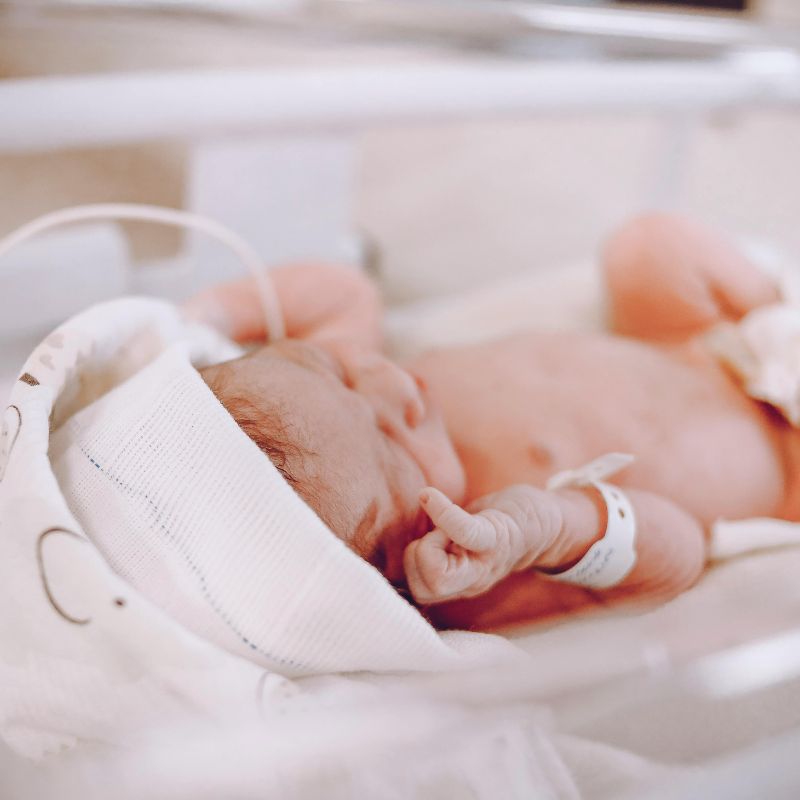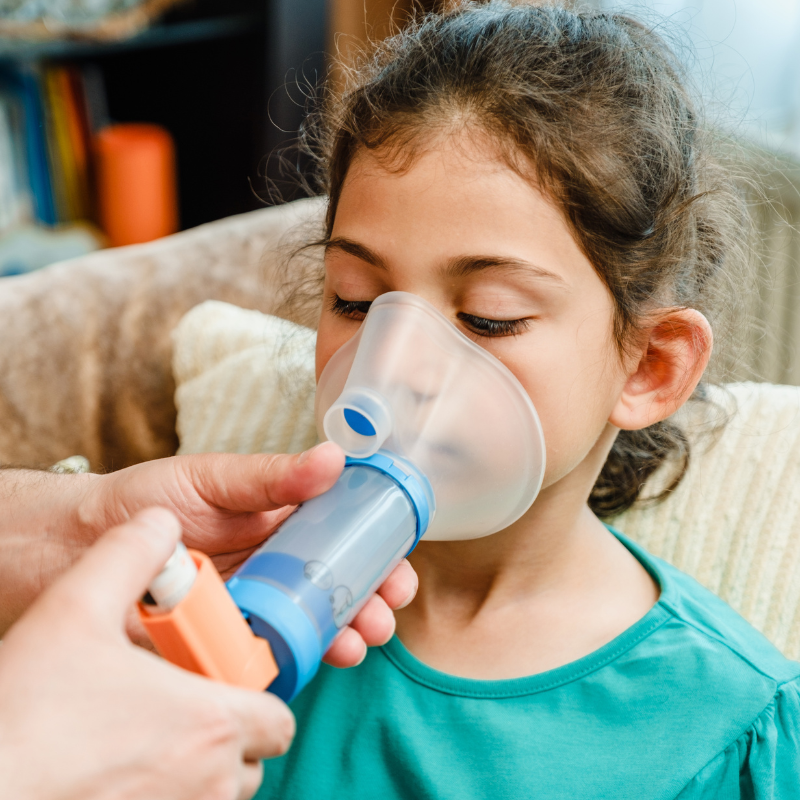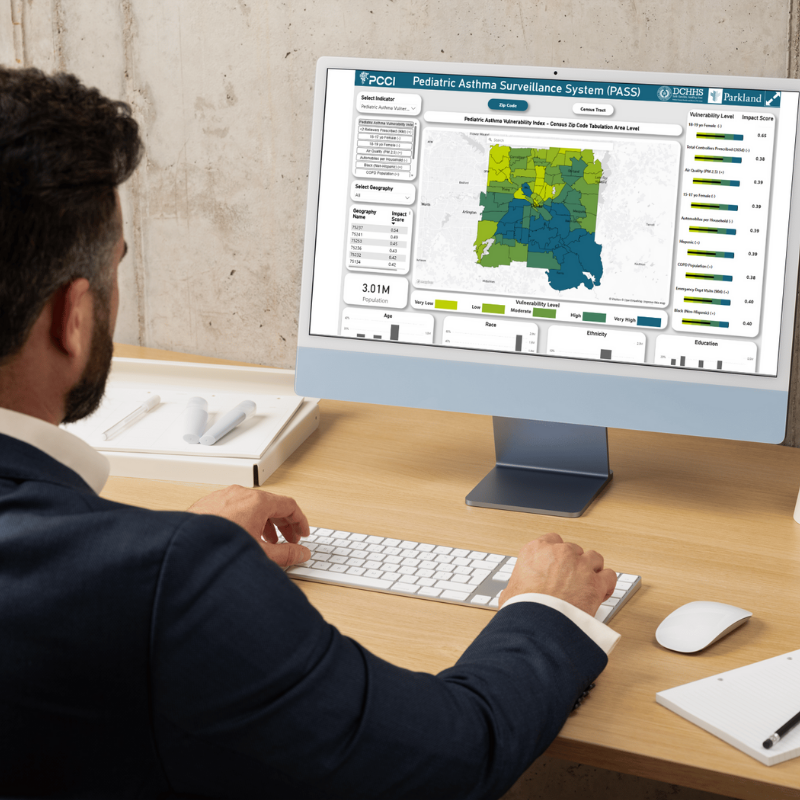
AI for Population Health
Our population health AI/ML predictive models help health systems and their community partners identify rising risks for clinical deterioration and access barriers to enable earlier and more targeted interventions. The goal is to move care and prevention upstream and proactively engage individuals in hyper-personalized ways to improve their health and avoid emergency room visits and hospitalizations.
AI/ML Models and Surveillance Systems
AI In Action: Preterm Birth Prevention (PTB) through Early Interventions
To better serve pregnant women, PCCI and the Parkland Community Health Plan (PCHP) developed and implemented an innovative Preterm Birth (PTB) Prevention program that uses a machine learning algorithm, healthcare data, and NMDoH to identify pregnant women who are at a higher risk of PTB within vulnerable communities. The program engages these women through text messages designed to help them better manage their health and proactively seek care during pregnancy.
The PTB program consistently risk stratifies about 13,000 pregnant women from vulnerable communities per year. This ongoing program enables early interventions, including enrolling women in a text education and reminder program that has helped reduce preterm birth rates by 20 percent and has increased prenatal doctor visits by 8-15 percent. This translates to millions of dollars in healthcare savings and spares families and children the possibility of a lifetime of challenges due to a premature birth.


Evolution of AI/ML Solutions to Improve Outcomes of Children with Asthma
Asthma is one of the most harmful chronic illnesses facing children in our community. Described as “our children’s comorbidity,” asthma is one of the most common issues that forces children, especially those from vulnerable populations, into our emergency rooms. To help alleviate this crisis, PCCI and Parkland have relied on AI/ML-driven timely diagnosis of rising asthma risk to dynamize proactive clinical and population-level interventions to curb asthma risk among vulnerable children.
PCCI deployed the first AI/ML asthma risk prediction model in 2016 using claims and NMDoH data from PCHP to predict the risk for an asthma emergency department visit (EDV) or hospitalization within 90 days. The AI/ML model proactively identified rising asthma risk and was used to trigger provider notification and population health interventions and engage caregivers via text messaging. The program was successfully implemented within PCHP’s provider network, including Parkland and other community clinics, leading to a 30-40% reduction in asthma-related EDVs within one year of rollout, sustained over five years, but limited to PCHP-insured patients only.
Pediatric Asthma Surveillance System (PASS) for Collective Disease Monitoring
The community-wide effort of PCCI, Parkland, and DCHHS and other community organizations through the Breath for Life & Learn for Life program uncovered the need for creation of a common data source to assess community risk and actionable insights for collective impact interventions. PASS was built as a community-facing dashboard leveraging AI/ML techniques, and social and clinical risk insights to predict pediatric asthma risk, identify risk drivers, and map risk disparities at the ZIP Code and census-tract level.
The PASS interactive dashboard is publicly available at the DCHHS website and has been visited by nearly 3,000 Dallas County residents, honored by the Dallas County Commissioners for its service to asthma sufferers, and described by the Dallas Morning News as “a win for Dallas County.” Community stakeholders now have a single source of precise, timely, and actionable data insights at the micro-geographic level to identify areas at high-risk for poor asthma outcomes and guide coordinated cross-systems collaborations.

